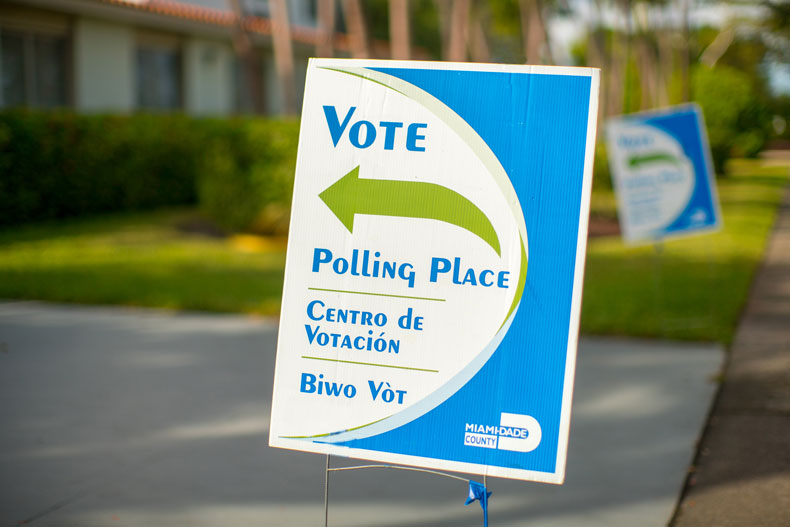Written by: Natalia Brown
It doesn’t have to be Election Day to harness the power of civic engagement! Here are some activities you can participate in year-round to organize and advocate in your community:
Volunteerism: Research suggests that young people who volunteer in their communities are more likely to vote and feel empowered as citizens. One study found that volunteers become emotionally connected to the communities they serve. Their sustained involvement may even translate to future economic growth (Promoting Student Engagement).
Volunteering has been found to help people of all ages to develop skills for professional success and build personal confidence. Engaged community leaders quickly gain a better understanding of the complex inner-workings of society and build skills to promote well-being for their communities.
The United Nations has credited volunteerism as a requirement for better governance at the local and national level. In fact, it’s considered a necessary first step for achievement of the international Sustainable Development Goals!

Community Involvement: Many studies have supported collaborative problem-solving and diversity in decision-making as important for stepping stones for positive impact. Joining a grassroots organization, participating in mutual aid, or creating partnerships between different groups can all contribute to fostering more collaboration and diversity in our community’s advocacy efforts.
To support plastic pollution reduction, we suggest that you engage with organizations that are advancing this agenda through social (beach cleanups, recreational events) and political (issue advocacy, lobbying) methods. Some excellent organizations that we work alongside are Miami Waterkeeper and Oceana!
Electoral Participation: This Tuesday, March 17th is the day to cast your vote in the 2020 Democratic Primary elections. If you are well and able, we urge you to cast your ballot for the candidate you feel is best fit to lead our nation!

You can advocate for electoral participation by: wearing buttons, using campaign stickers or signs, sharing information about how to reach nearby polling places, volunteering for an issue advocacy organization, working with a campaign, phone banking to help eligible voters register, or volunteering at your nearest polling location.
Political Voice: When it isn’t election season, you can work towards building a stronger relationship with your elected officials. Engaging with those in office is crucial to holding public officials accountable to their community’s needs. You can contact them directly via email, visit a district office, or schedule a call with one of their staffers to speak about an issue or upcoming bill that is important to you.
You can also draft a blog post or op-ed on an issue that you feel strongly about to build more awareness in your community. Local journalists may be inspired by your contributions to increase coverage on an issue that would have otherwise been overlooked.
For many proposed bills and regulations, there are open windows for public comment where citizens can respond to specific proposals. This is a great way to directly contribute to the policy-making process, and it’s a great opportunity to learn more about policy alternatives that may be implemented to address an issue that you care about. That said, you won’t have the opportunity to provide a comment for a particular issue if nothing has been proposed to address it. This reinforces the importance of electing public officials who are in-tune with their constituencies and willing to build action-oriented relationships with advocates throughout their terms of office.
Digital Communications: We are living in unprecedented times—with limitless access to information and the ability to share our opinions with a massive audience at any moment. The internet has become a major avenue for social interaction and can be used as a tool for advocacy beyond our local communities. We encourage you to use this resource responsibly by sharing information from reputable sources and exposing yourself to diverse perspectives. Please be cognizant of the potential to be misled by misinformation and disinformation.
You can use social media and digital campaigns to advocate for issues that you care about and support candidates during electoral cycles. Digital communications, including social media and video calls, may also be a more accessible entry point for you to engage with elected officials that represent you.
Online advocacy is great for awareness-building and mobilization around our shared social struggles, but it’s not an equal replacement for electoral participation. Posting an informative graphic or re-sharing a statement by a preferred candidate does not have the same effect as voting for that candidate or issue area.
The right to vote is a great power and privilege that not all people are afforded. If you’re reading this during an election cycle, join us in supporting GOTV efforts! Sharing information with your online community can also be used to mobilize individuals towards actions. Consider re-sharing tips for folks to find their local polling place, obtain a vote-by-mail or absentee ballot, and join phone banking events for candidates they support.



